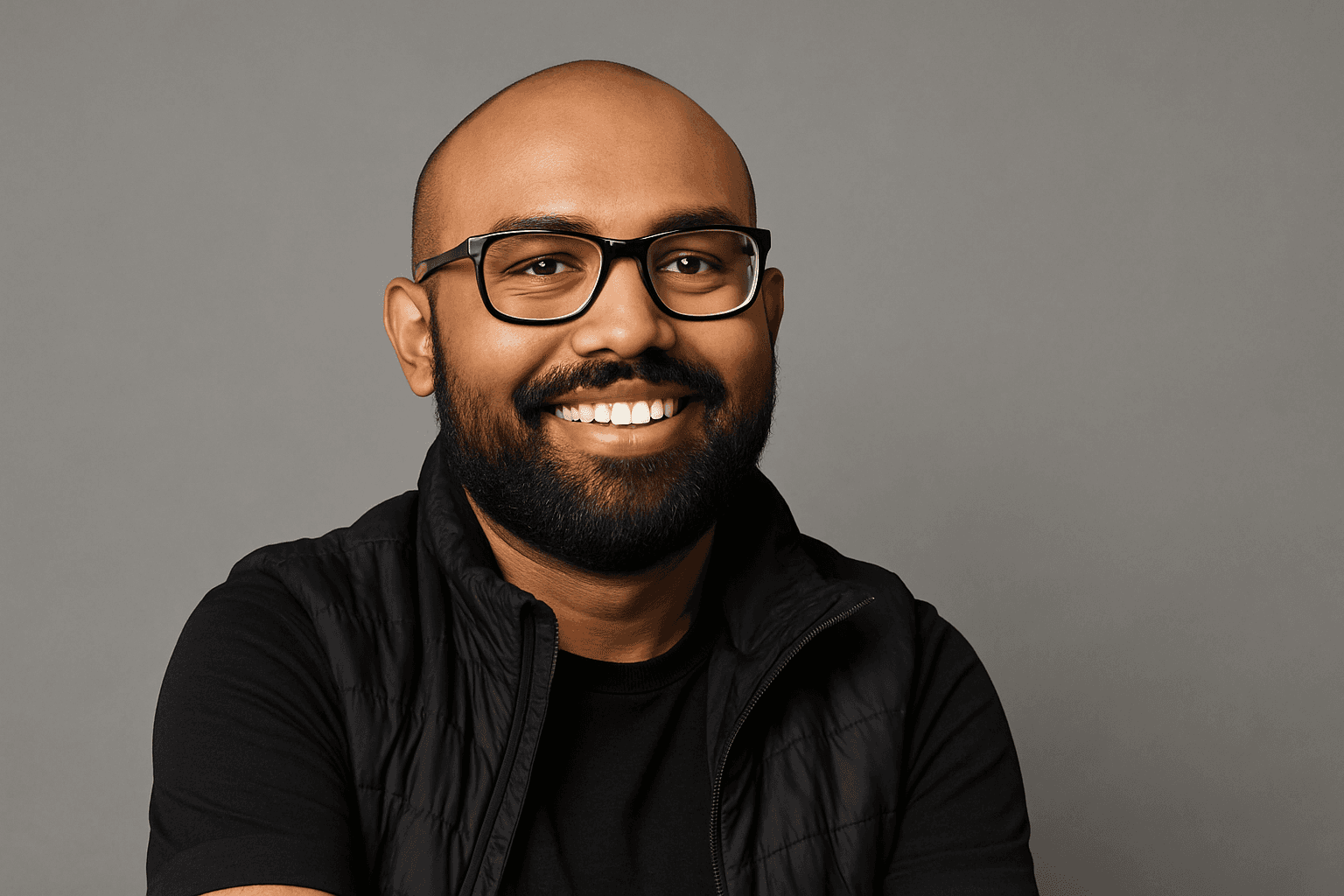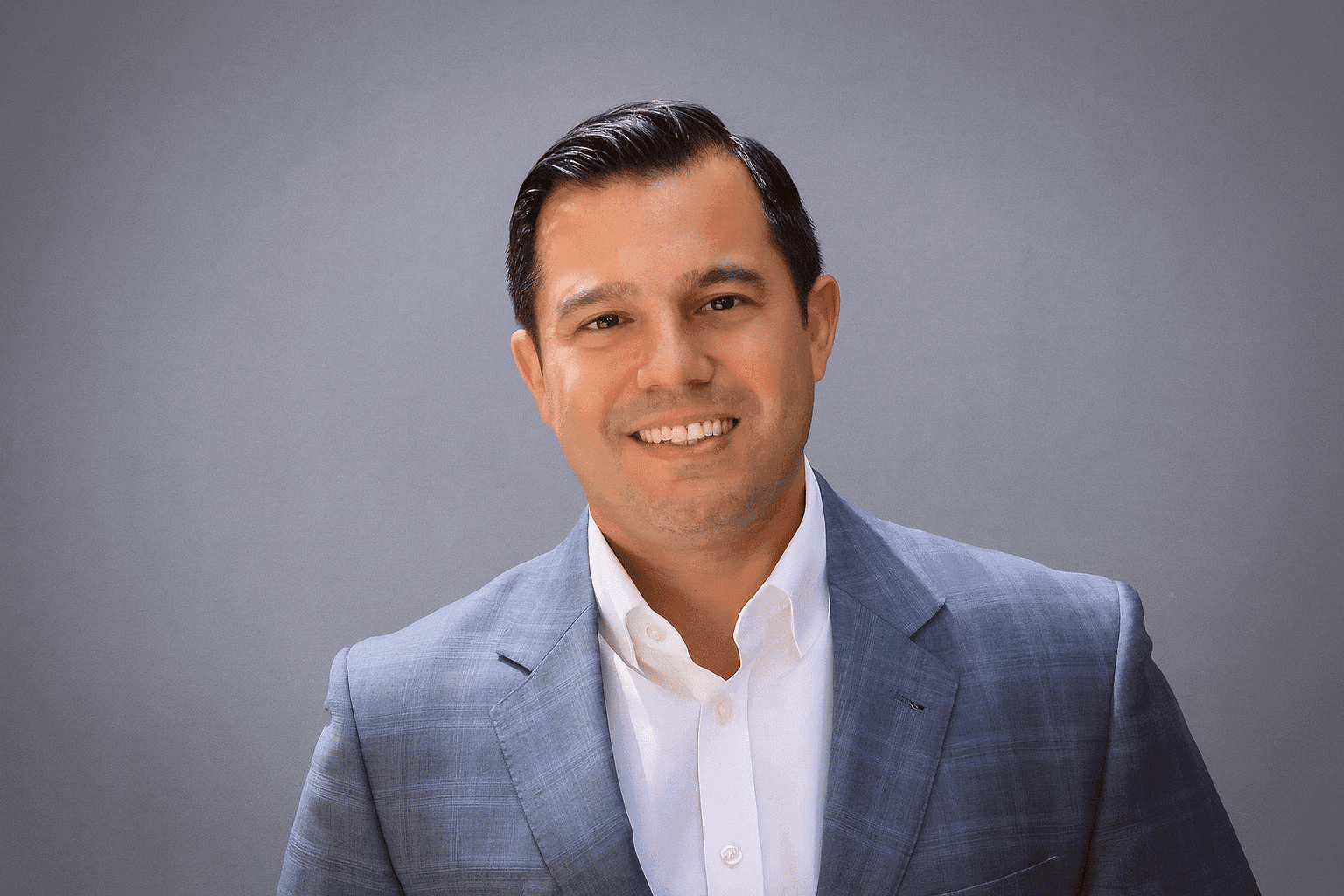
Sadi KhanCo-founder & CEO
Sadi Khan, co-founder and CEO of Aven, is building a fintech that allows homeowners to access cheaper credit by combining home equity and credit card models. After leaving Facebook, he set out to attack America’s persistent credit card interest crisis with technology and conviction.
Founder Stats
- Finance, Technology
- Started 2019
- $1M+/mo
- 50+ team
- USA
About Sadi Khan
In 2019, after stepping away from Facebook, Sadi Khan launched Aven to solve what he saw as a glaring inefficiency in consumer credit. By fusing the speed of a credit card with the low cost of home equity debt, his vision is to reduce interest burdens for millions of Americans. With a rational leadership style, deep domain mastery, and uncompromising focus on mission, Khan aims to build both a sustainable business and a lasting social impact.
Interview
October 07, 2025
What is the first piece of advice you would give to someone who wants to start a company?

My first advice would be, don't start a company. It’s genuinely very hard. Everyone told me that before I started, and I didn’t believe them. Now, I say it to others and I can see they don’t believe me either. But it’s true, it’s a whole new kind of hard that lasts for years.
Why do you say conviction is so important before starting a business?

Because you need to have an extreme level of conviction that the problem you’re working on is worth decades of your life. You must be ready to go for years without being paid, recognized, or even supported, and still believe it’s the most important thing you can solve.
What motivated you to start Aven after leaving Facebook?

When I retired, I didn’t feel I was adding value to society. I’ve always been an engineer and builder. I wanted to solve something that made people’s lives better. I realized that if we can help people save money, we make society wealthier, and that became the foundation for Aven.
What main problem is Aven trying to solve?

Today, Americans owe about $1 trillion in credit card debt and pay around $200 billion a year in just interest. We want to cut that in half, saving consumers $100 billion a year, by giving them cheaper, faster, and more transparent access to their home equity.
How did your prior experience at Microsoft and Facebook shape how you build teams at Aven?

It taught me the value of elite technical talent. The difference between a 99.9th percentile engineer and a 95th percentile engineer is massive. I learned that recruiting and keeping the very best people is the most important investment any company can make.
What qualities do you look for when hiring top technical talent?

Three things: intelligence, work ethic, and mission alignment. Intelligence is underrated; we want the smartest people we can find. Then we look for those who can work hard for a long time. And finally, their personal ambition must align with our mission of reducing the cost of capital for Americans.
How do you manage Aven’s operations week to week?

Every Sunday at 6 PM, our leadership team meets to lock in our roadmap for the next seven days. It helps us move fast and stay accurate. We make sure we’re never wrong for more than a week before we correct direction.
How deeply are you involved with the regulatory side of your product?

As a founder, I think it’s vital to understand the legal and regulatory details yourself. I’ve personally read the Dodd-Frank Act, Card Act, and TILA. It’s not enough to rely on others; you must know what’s possible, what’s safe, and what’s compliant.
What did you learn from Aven’s early product development?

In hindsight, we should have started with a smaller, narrower feature set. Most product managers will tell you the same thing, it’s better to build something focused and simple, then expand later. Early on, we tried to do too much.
What challenges did you face gaining customer trust early on?

Many people didn’t believe we were real. We’d get calls asking if we were a scam. Sometimes I personally had to answer those calls to assure them. It showed how important human connection and communication are when you’re introducing a new idea.
How would you describe your leadership style?

I aim to be maximally rational. I learned this from Mark at Facebook. Being rational makes you predictable, and being predictable helps others make decisions even when you’re not around. My goal is to make decisions so logical that anyone with the same information would reach the same conclusion.
Why is predictability in leadership so important to you?

Because it helps scale decision making. Emotional decisions don’t scale, rational ones do. If people understand why we’re doing something, they can explain it to others and execute with clarity. That’s how great execution happens.
How do you balance profit and mission at Aven?

Our mission is to reduce the cost of capital for consumers. But to do that sustainably, we must not die, meaning we must be profitable. So, our profit comes directly from the savings we create for people. That way, being profitable means we’re fulfilling our mission.
What’s your approach to making difficult decisions?

I don’t believe in pros and cons lists. Instead, I identify the most important axes like cost, reliability, and performance, and rank them by priority. Then I compare options based on those priorities. It’s a process I use for both business and personal decisions.
How do you keep your personal life balanced and focused?

I live a very simple life. I don’t drink or party. I moved close to the office, cook for my family twice a week, and go to the gym. I wear the same outfit every day, black long sleeve, jeans, and a vest, to avoid wasting energy on small choices. Boring is great. I love boring.
Why do you prefer simplicity even in small things like your workspace?

Because it removes friction. I have three identical workstations, same keyboard, mouse, and monitor setup, so I can start working immediately. If your keyboard is off by even a millimeter, your typing errors go up. Small consistency makes a big difference.
What kind of work environment do you want to create for your team?

Calm and focused. That’s why we’re based in the South Bay instead of a busy city. We want our team to have peace and mental space to think clearly, work deeply, and stay connected to our mission. Less noise, more focus.
Table Of Questions
Video Interviews with Sadi Khan
The $2.2B Founder's First Advice | Sadi Khan, Aven
Cite This Interview
Use this interview in your research, article, or academic work
Related Interviews

Hayes Barnard
Founder & CEO at GoodLeap
Hayes Barnard, founder of GoodLeap, scaled his company into a multibillion-dollar platform by focusing on resilience, ethical choices, and building value in hard markets. Known for his story of overcoming adversity, Hayes inspires entrepreneurs with lessons on leadership, purpose, and perseverance.

Marc Rowan
CEO & Co-Founder at Apollo Global Management
Marc Rowan co-founded Apollo Global Management and grew it into one of the largest alternative investment firms in the world. He believes the future of investing is not only in equities but also in private markets, which now underpin most of the economy. His mission is to open these markets to individuals, create better diversification, and redefine wealth management.

Anthony Denier
Group President & U.S. CEO at Webull Corporation
Anthony Denier is leading Webull through its first years as a public company, building an AI-enabled global brokerage for sophisticated retail investors while trying to stay nimble, transparent, and close to the everyday trader.
